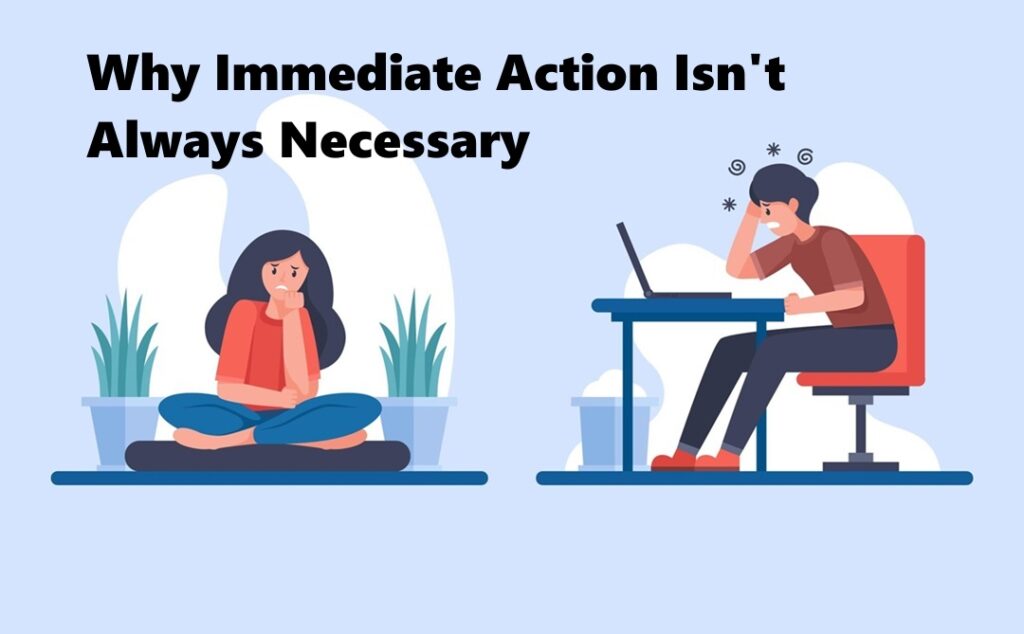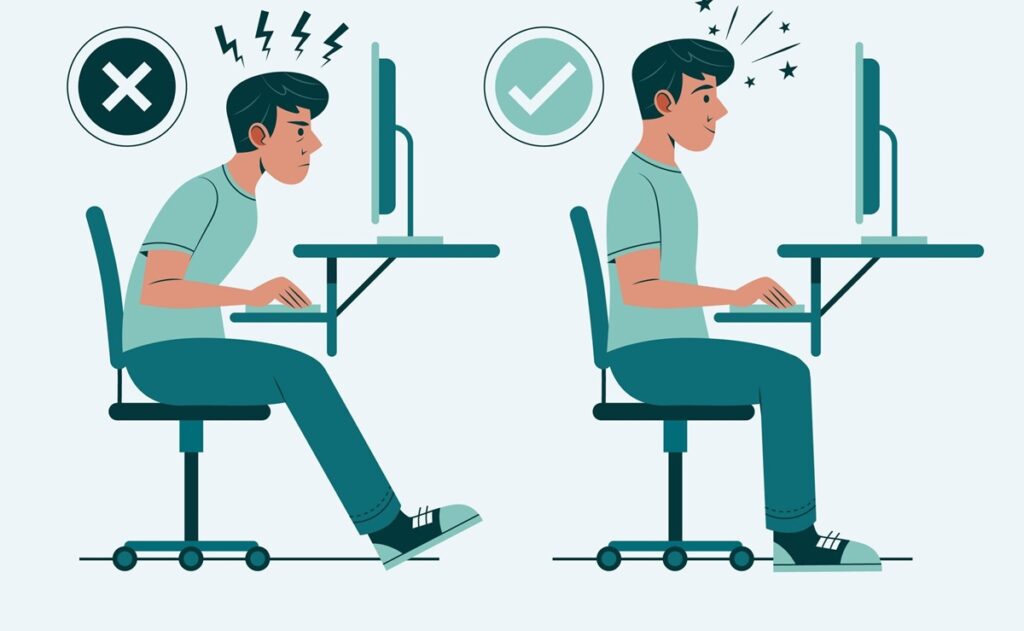In today’s fast-paced world, we often feel pressured to respond immediately to everything that happens around us. However, learning to sit back and observe can be a powerful tool for both personal and professional growth. The phrase “Learn to Sit Back and Observe. Not Everything Need – Tymoff your immediate attention” encapsulates this wisdom. By mastering the art of observation, we can make more informed decisions, build stronger relationships, and enhance our overall well-being.
Table of Contents
The Power of Observation
Observation is the act of carefully watching and analyzing events, behaviors, or phenomena without immediate intervention. It is a skill that has been valued throughout history. For instance, scientists like Charles Darwin and leaders like Mahatma Gandhi were known for their keen observational abilities, which allowed them to understand and influence the world around them profoundly.
Why Immediate Action Isn’t Always Necessary

Not every situation demands immediate action. It’s crucial to distinguish between urgency and importance. Urgent matters often scream for our attention, but they may not always be important in the grand scheme of things. Acting hastily can lead to mistakes, misjudgments, and unnecessary stress. By taking a step back, we can evaluate the situation more clearly and determine the best course of action.
Benefits of Sitting Back and Observing
- Improved Decision Making: When you take the time to observe, you gather more information and perspectives, leading to more informed decisions.
- Enhanced Problem-Solving Skills: Observation helps you identify patterns and underlying issues, making it easier to find effective solutions.
- Better Relationship Management: By observing others, you can better understand their needs, emotions, and motivations, which can improve your interactions and relationships.
How to Cultivate the Habit of Observing
- Practice Mindfulness: Mindfulness is about being present in the moment. It encourages you to observe your thoughts, feelings, and surroundings without judgment.
- Develop Active Listening Skills: Active listening involves fully concentrating on the speaker, understanding their message, and responding thoughtfully.
- Engage in Reflective Thinking: Reflect on your experiences and observations regularly. This can help you learn from them and apply your insights in the future.
Observation in Professional Settings

In the workplace, observation can enhance team dynamics and leadership effectiveness. Leaders who observe their teams can identify strengths, weaknesses, and areas for improvement. For example, Steve Jobs was known for his keen observational skills, which he used to drive innovation at Apple.
Observation in Personal Life
Observation isn’t just beneficial in professional settings; it’s equally valuable in personal life. For instance:
- Improving Personal Relationships: By observing your loved ones, you can better understand their needs and emotions, leading to stronger connections.
- Observation in Parenting: Parents who observe their children can identify their interests, strengths, and areas where they may need support.
- Self-Observation and Personal Growth: Reflecting on your actions and behaviors can lead to personal growth and self-improvement.
Challenges of Learning to Sit Back and Observe
- Overcoming Impatience: In a world that values quick responses, it can be challenging to develop the patience needed for observation.
- Dealing with Anxiety: Observing without acting can sometimes create anxiety, especially if you’re used to immediate responses.
- Battling the Fear of Missing Out (FOMO): The fear that you’ll miss out on something important if you don’t act immediately can be a significant barrier.
Techniques to Enhance Observational Skills
- Journaling and Note-Taking: Writing down your observations can help you process and remember them.
- Meditation and Breathing Exercises: These practices can help you stay calm and focused, enhancing your ability to observe.
- Participating in Quiet Activities: Activities like reading, painting, or walking in nature can help you develop a more observant mindset.
Tools and Resources for Better Observation

There are various tools and resources available to help you improve your observational skills:
- Books and Literature: Reading about observation and mindfulness can provide valuable insights and techniques.
- Apps and Technology: Apps like Headspace and Calm offer guided meditations and mindfulness exercises.
- Workshops and Seminars: Participating in workshops and seminars can provide hands-on experience and guidance from experts.
Psychological Perspective on Observation: (Learn to Sit Back and Observe. Not Everything Need – Tymoff)
Observation has numerous psychological benefits:
- Cognitive Benefits: It enhances your cognitive abilities, such as memory, attention, and critical thinking.
- Emotional Regulation: Observing without immediate reaction can help you manage your emotions more effectively.
- Long-term Mental Health Benefits: Regular observation and reflection can reduce stress and improve overall mental health.
Common Myths about Observation and Action: (Learn to Sit Back and Observe. Not Everything Need – Tymoff)
- Myth: Observation Equals Inaction: Observation is not passive. It’s an active process that involves gathering information and insights.
- Myth: Observation is Passive: Observers are often more engaged and aware than those who act impulsively.
Case Studies and Real-Life Examples: (Learn to Sit Back and Observe. Not Everything Need – Tymoff)
Real-life examples illustrate the power of observation:
- Stories of Successful Observers: Many successful individuals attribute their achievements to their ability to observe and analyze situations carefully.
- Lessons Learned from Observing: Learning from others’ experiences and mistakes can provide valuable lessons and prevent you from making the same errors.
Practical Tips for Everyday Observation: (Learn to Sit Back and Observe. Not Everything Need – Tymoff)
- Start Your Day with a Moment of Observation: Take a few minutes each morning to observe your thoughts and surroundings.
- Practice Observation in Social Settings: Pay attention to people’s body language, tone of voice, and expressions.
- Apply Observation in Decision-Making Processes: Before making decisions, take time to observe and gather as much information as possible.
Conclusion: Learn to Sit Back and Observe. Not Everything Need – Tymoff
Learning to sit back and observe can significantly enhance your life. By distinguishing between urgency and importance, you can make better decisions, build stronger relationships, and achieve personal and professional growth. Embrace the power of observation, and you’ll find that not everything needs your immediate attention.
FAQs: Learn to Sit Back and Observe. Not Everything Need – Tymoff
Why is observation important in decision-making? Observation allows you to gather comprehensive information, leading to more informed and effective decisions.
How can I improve my observational skills? Practice mindfulness, engage in active listening, and reflect on your experiences regularly.
What are the benefits of observing rather than acting immediately? Observation helps you avoid hasty decisions, reduces stress, and improves problem-solving skills.
How does observation affect personal relationships? By observing others, you can better understand their needs and emotions, leading to stronger and more meaningful connections.
Can everyone learn to be a better observer? Yes, with practice and the right techniques, anyone can enhance their observational skills.


